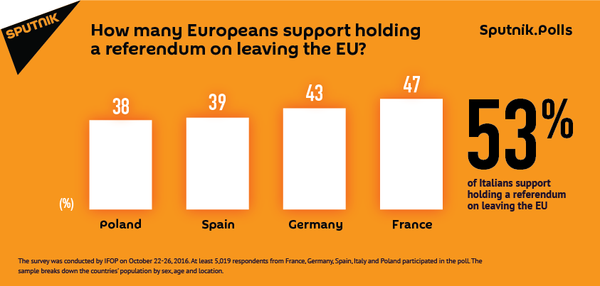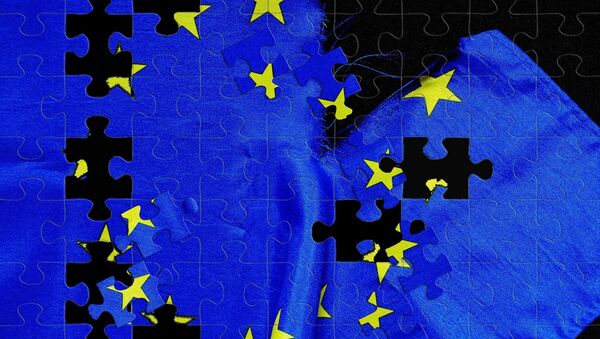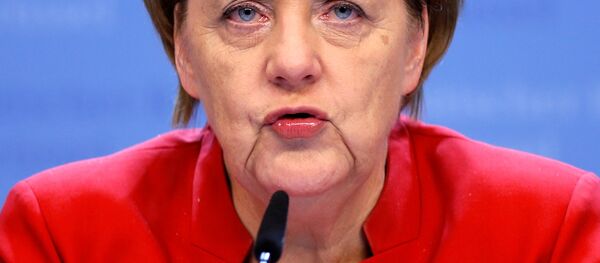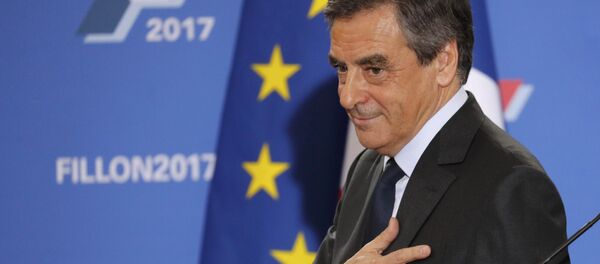When asked "Do you want your country to hold a referendum on leaving the EU like in Britain?" over half of respondents in Italy (53 percent) responded in the affirmative.
In France, 47 percent said they wanted a referendum, in Germany 43 percent, Spain 39 percent and in Poland 38 percent.
Sanda Raskovic Ivic, a deputy for the Democratic Party of Serbia in the Serbian parliament, told Sputnik Srbija that the proportion of Europeans unhappy with the EU "experiment" is set to rise as the bloc's weaknesses become more apparent.
"The EU is an experiment which was very well conceived but turned out to be ineffective upon implementation. The EU hasn't solved a single one of the serious problems: economic crisis, migration crisis, questions of defense and security."
The EU's government in Brussels has allowed itself to become a vassal of Washington, which protects US interests more than the national interests of EU member states, Raskovic said.
"The best example of that are sanctions against Russia. The economies of EU countries have suffered as a result, but because of some 'principles' they are still in force. I hope that after Trump comes to power things will change, but I don't think that the number of Europeans wanting their country to leave the EU will decrease as a result. Brexit has already shown that it's possible to vote to leave the EU in a referendum, and the country doesn't fall apart."
In 2012, Serbia received the status of EU candidate country, and Belgrade has since opened negotiations with Brussels and other EU members regarding four of the 35 chapters of accession negotiations each country must go through before becoming an EU member. However, the EU is likely to have a different form when Serbia eventually fulfils the bloc's demands, Raskovic said.
"We shouldn't expect the departure of certain countries from the EU to proceed rapidly. EU politics, like world politics in general, is like a tanker. When it turns around, it is necessary to do it gradually, otherwise it will just capsize. However, the process of the tanker's reversal has already begun and it's not possible to stop it now, despite the intentions of individual structures in Brussels and Washington to return everything to how it used to be. I believe that's no longer possible," Raskovic said.
The October poll found that the proportion of Europeans who want a referendum on EU membership had increased since July. In Spain the number of respondents who said they want a referendum increased from 34 percent to 39 percent. In Italy the percentage increased from 46 percent to 53 percent, and in Poland from 33 percent to 38 percent.

"I think that this is quite an impressive survey, because a year ago I am sure these polls would have given much smaller numbers (of people in favor of holding a referendum on EU membership)."
"The first reason is the continuing deterioration of the socio-economic situation for many years … This continuing policy of austerity and the lack of tangible results after many years."
"There is a second reason which seems important to me. Over the years, the EU has become more and more like a dictatorial structure. There was a shock in France when the Lisbon Treaty was adopted in 2008, which largely represents the same text as the EU constitution and which 55 percent of French voters had rejected three years earlier."
"The Brexit vote is the third important event. The decision of the British people to leave the EU in a referendum of course has an effect on other people's thoughts."
The politician said that changes in the political landscape are causing French people to become more politically involved.
"More and more French people want the opportunity to speak their mind, and they are reclaiming their civil functions in society," Asselineau said.





